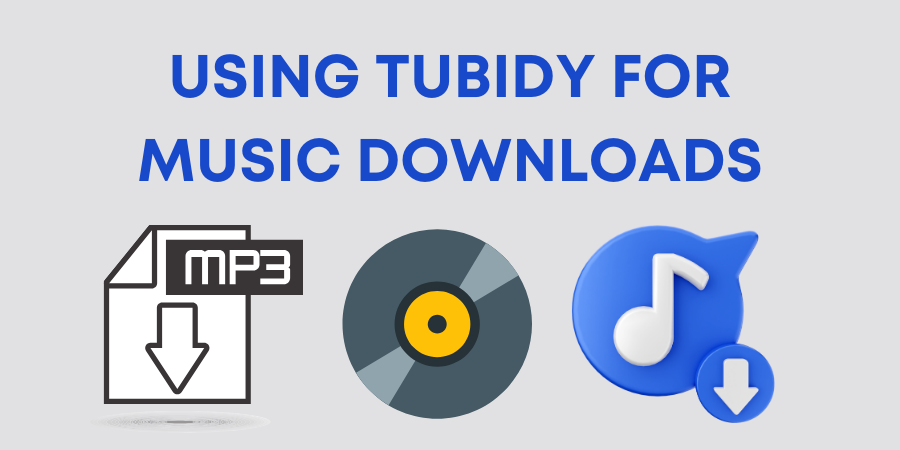
In today’s digital age, accessing music has become easier than ever. With platforms like Tubidy offering a vast library of songs at our fingertips, music enthusiasts worldwide can enjoy their favorite tunes with just a few clicks. However, amidst the convenience and accessibility, questions regarding the legality of using Tubidy for music downloads often arise. In this article, we delve into the legal aspects of utilizing Tubidy for downloading music, examining its implications and addressing common concerns.
Understanding Tubidy: A Gateway to Music
Tubidy mp3 has emerged as a popular online platform for music enthusiasts seeking to explore and download their favorite tracks. With its user-friendly interface and extensive collection of songs spanning various genres and languages, Tubidy serves as a convenient hub for music discovery and enjoyment. Users can simply navigate the website, search for their desired songs, and initiate downloads effortlessly.
1. The Functionality of Tubidy
Tubidy functions as a music search engine, combing through the internet to find audio files stored on different platforms. When users input a search query, Tubidy delivers a list of pertinent results, enabling them to listen to previews and download their chosen tracks. It accommodates various file formats, such as MP3, ensuring compatibility with a diverse array of devices and music players.
2. Legal Concerns Surrounding Tubidy
While Tubidy offers a seamless music downloading experience, its legality remains a subject of debate and scrutiny. The primary concern stems from the source of the music files accessible through the platform. As Tubidy aggregates content from across the internet, including third-party websites and platforms, questions arise regarding the copyright status of the downloaded songs.
Copyright Considerations: Navigating the Legal Landscape
Copyright law governs the use and distribution of creative works, including music, protecting the rights of content creators and owners. When it comes to downloading music from Tubidy, users must consider the following aspects to ensure compliance with copyright regulations:
1. Ownership and Licensing
Before downloading a song from Tubidy, it’s essential to ascertain whether the content is authorized for distribution. Rights holders, such as recording artists, record labels, and music publishers, hold exclusive rights to reproduce and distribute their works. Unauthorized downloading of copyrighted music constitutes infringement, potentially resulting in legal consequences for users.
2. Fair Use Doctrine
The fair use doctrine permits the restricted utilization of copyrighted material without seeking permission from the rights holder in particular situations, like for criticism, commentary, or educational purposes. Nevertheless, the suitability of fair use hinges on the precise context, and individuals should be cautious when using this defense to validate music downloads from Tubidy.
3. Legal Alternatives
In light of the potential legal risks associated with using Tubidy for music downloads, users may consider exploring legal alternatives for accessing music content. Numerous platforms offer licensed streaming services, allowing users to listen to music legally while supporting artists and rights holders. By subscribing to legitimate streaming services, users can enjoy a vast catalog of music without infringing on copyright laws.
The Legality of Tubidy MP3 Downloads: A Legal Perspective
When assessing the legality of Tubidy MP3 downloads, it’s crucial to consider the platform’s role in facilitating access to copyrighted content. While Tubidy itself may not host the music files, its function as a search engine and aggregator raises questions about liability and responsibility for copyright infringement.
1. Secondary Liability
Secondary liability refers to the legal responsibility of entities that contribute to or facilitate copyright infringement, even if they are not directly involved in the infringing activities. In the case of Tubidy, its role in indexing and providing access to copyrighted music files could potentially expose it to liability for contributory infringement.
2. Safe Harbor Provisions
Under the Digital Millennium Copyright Act (DMCA) and similar legislation in other jurisdictions, online service providers may qualify for safe harbor protection against copyright infringement claims under certain conditions. To avail of safe harbor provisions, platforms like Tubidy must comply with specified requirements, such as implementing procedures for responding to takedown notices from rights holders.
Mitigating Legal Risks: Best Practices for Tubidy Users
To minimize the legal risks associated with using Tubidy for music downloads, users can adopt the following best practices:
1. Conduct Due Diligence
Before downloading music from Tubidy, users should verify the copyright status of the content and ensure that it is authorized for distribution. Checking for any licensing or usage restrictions can help users avoid infringing on the rights of content creators.
2. Support Legal Alternatives
Instead of relying on questionable sources for music downloads, users can opt for legal alternatives such as licensed streaming services or digital music stores. By supporting legitimate platforms, users can enjoy music legally while respecting the rights of artists and rights holders.
3. Exercise Caution
While Tubidy offers a convenient way to access music, users should exercise caution and discretion when using the platform for downloads. Avoiding suspicious or unauthorized sources can help mitigate the risk of inadvertently engaging in copyright infringement.
Conclusion
The legality of using Tubidy music downloads hinges on various factors, including the source of the content and compliance with copyright laws. While Tubidy provides a convenient platform for accessing a vast library of songs, users must exercise caution to avoid infringing on the rights of content creators. By understanding the legal implications and adopting best practices, users can enjoy music responsibly while respecting copyright regulations. Additionally, exploring legal alternatives ensures a sustainable and ethical approach to music consumption in the digital age.


